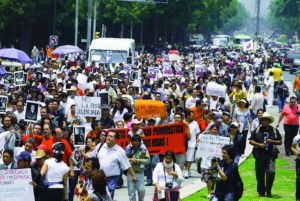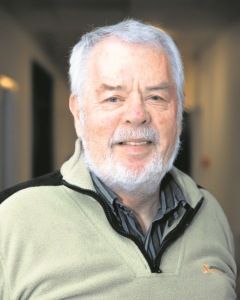Opinion
This Week’s Editorial: Press freedom is not self-evident
Ejvind Sandal
This article is more than 9 years old.

A 2010 march by journalists in Mexico drew attention to the increasing violence directed towards their profession, and nothing much has changed since (photo: Knight Foundation)
May 3 was the 25th International Press Freedom Day. It was celebrated worldwide.
High freedom ranking
A recent international survey on press freedom rated Denmark at number six in front of Sweden, but after Finland and Norway. That is fine.
Constitutional protection of the freedom of the press is commonplace – in Denmark and across the world. For example, it’s in the first amendment of the US Constitution that no law should prohibit freedom of speech or of the press.
A perilous profession
However, as Press Freedom Day approached, we continue to hear horrific stories of journalists being harassed into silence as they try to report uncomfortable truths.
Verbal attacks by presidential candidates in the US, new security laws in Europe and the increased surveillance of information are some of the challenges journalists face today.
Last year was one of the worst years for press freedom. About 46 percent of the world’s population lives in areas without press freedom. The worst country of all is North Korea where tightened security and surveillance laws completely limit the space for free expression.
Declining in Europe too
Europe as a whole has endured the largest decline in press freedom in any region according to the report Freedom of the Press 2016.
This year, 16 journalists have been killed. In 2015, 70 journalists were killed and 140 imprisoned.
It is important to take a day to remember those journalists who paid with their lives, or are behind bars for their efforts to inform the public. (ES)

About
Ejvind Sandal
Copenhagen Post editor-in-chief Ejvind Sandal has never been afraid to voice his opinion. In 1997 he was fired after a ten-year stint as the chief executive of Politiken for daring to suggest the newspaper merged with Jyllands-Posten. He then joined the J-P board in 2001, finally departing in 2003, the very year it merged with Politiken. He is also a former chairman of the football club Brøndby IF (2000-05) where he memorably refused to give Michael Laudrup a new contract prior to his hasty departure. A practising lawyer until 2014, Sandal is also the former chairman of Vestas Wind Systems and Axcel Industriinvestor. He has been the owner of the Copenhagen Post since 2000.










































